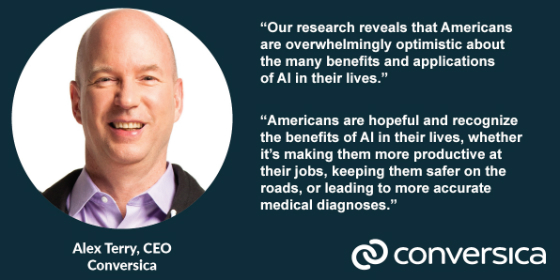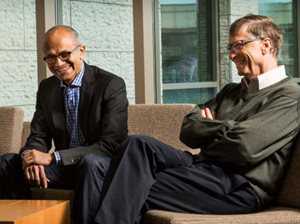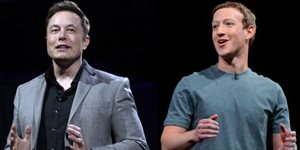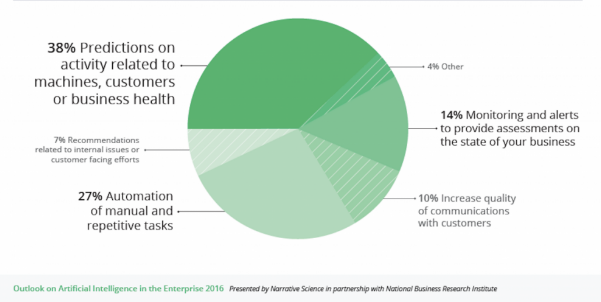75% of Americans Say AI is Here to Help Humans
Considering there isn’t a day that goes by without news on how artificial intelligence (AI) will transform every aspect of our daily lives, AI is undoubtedly one of the hottest topics, almost everyone has some sort of opinion about the future effects of AI technologies. Some of us still think of a potential glorified battle to save the human race from villain robots like the Terminator series where Skynet, a neural network-based conscious group mind and artificial general intelligence system, obtains self-awareness after spreading to millions of computers and attempts a nuclear genocide or, some of us like Elon Musk believe that AI may kick off World War III, whereas some of us are having a more positive outlook and think of AI as a revolution in many important vertical industries such as healthcare and education.
To find out what Americans really think about the future of AI and how it will shape their lives, Conversica, a startup developing artificial-intelligence-fueled sales software, surveyed over 1,000 Americans. The findings revealed that the majority of Americans have a positive outlook when it comes to the growing presence of artificial intelligence (AI) in their lives. In fact, three out of four Americans (75 percent) say AI is here to help humans.

Artificial intelligence is not the future anymore as it has already been around for quite some time. AI technology is not just something invented for billionaire Silicon Valley companies either, as more and more non-tech companies today, are utilizing accelerated AI solutions as well. The technology was initially focused more on industrial and mechanical industries to boost productivity in mass production, but today, all types of businesses are taking advantage of artificial intelligence in order to figure out how to develop more products in the most productive way, how to engage with their audiences more than ever, and how to generate traffic and high-quality leads. The aforementioned study backs me up as it discovered that, three out of four Americans (75 percent) indicated that those who fail to embrace AI in the workplace will be left behind in their jobs.
Microsoft co-founder Bill Gates seems to share the same belief with those Americans as he  says, “AI is on the verge of making our lives more productive and creative." Boosting productivity in the office wasn’t the only benefit of AI that Gates praised about as he wrote in the forward of Microsoft CEO Satya Nadella's new book "Hit Refresh": "Innovation will improve many other areas of life too." He elaborated on that argument by giving some solid examples: “Digital tracking tools and genetic sequencing are helping us get achingly close to eradicating polio, which would be just the second human disease ever wiped out. In Kenya, Tanzania, and other countries, digital money is letting low-income users save, borrow, and transfer funds like never before. In classrooms across the United States, the personalized-learning software allows students to move at their own pace and zero in on the skills they most need to improve.”
says, “AI is on the verge of making our lives more productive and creative." Boosting productivity in the office wasn’t the only benefit of AI that Gates praised about as he wrote in the forward of Microsoft CEO Satya Nadella's new book "Hit Refresh": "Innovation will improve many other areas of life too." He elaborated on that argument by giving some solid examples: “Digital tracking tools and genetic sequencing are helping us get achingly close to eradicating polio, which would be just the second human disease ever wiped out. In Kenya, Tanzania, and other countries, digital money is letting low-income users save, borrow, and transfer funds like never before. In classrooms across the United States, the personalized-learning software allows students to move at their own pace and zero in on the skills they most need to improve.”
Not all Americans are that cheerful about embracing AI as earlier in July, Elon Musk, the CEO of SpaceX and Tesla, expressed his concerns with these controversial words: “I have exposure to the most cutting-edge AI, and I think people should be really concerned by it. AI is a fundamental risk to the existence of human civilization." Unlike many technology titans, Musk has longstanding worries about the potential of artificial intelligence. He also warned governments at a meeting of U.S. governors this year, saying: “AI is a rare case where we need to be proactive in regulation instead of reactive because if we’re reactive in AI regulation it’s too late.” He believes that by manipulating information such as doing fake news, spoofing email  accounts, and doing fake press releases a war can begin. These statements irked Facebook CEO Mark Zuckerberg as he opposes the spread of fear surrounding the future of artificial intelligence. “AI is going to make our lives better in the future, and doomsday scenarios are "pretty irresponsible," said Zuckerberg in a Facebook Live broadcast. "Whenever I hear people saying AI is going to hurt people in the future, I think yeah, you know, technology can generally always be used for good and bad, and you need to be careful about how you build it and you need to be careful about what you build and how it is going to be used," explained Zuckerberg and scolded: "But people who are arguing for slowing down the process of building AI, I just find that really questionable. I have a hard time wrapping my head around that." Interestingly, Zuckerberg wasn’t the only one who publicly reacted to Musk’s dire warnings. Another Silicon Valley fellow, John Giannandrea, the senior vice president of engineering at Google, who is in charge of the tech giant's AI efforts also stated that “predictions about a dangerous future with artificial intelligence are grossly unhelpful” – without mentioning Musk by name.
accounts, and doing fake press releases a war can begin. These statements irked Facebook CEO Mark Zuckerberg as he opposes the spread of fear surrounding the future of artificial intelligence. “AI is going to make our lives better in the future, and doomsday scenarios are "pretty irresponsible," said Zuckerberg in a Facebook Live broadcast. "Whenever I hear people saying AI is going to hurt people in the future, I think yeah, you know, technology can generally always be used for good and bad, and you need to be careful about how you build it and you need to be careful about what you build and how it is going to be used," explained Zuckerberg and scolded: "But people who are arguing for slowing down the process of building AI, I just find that really questionable. I have a hard time wrapping my head around that." Interestingly, Zuckerberg wasn’t the only one who publicly reacted to Musk’s dire warnings. Another Silicon Valley fellow, John Giannandrea, the senior vice president of engineering at Google, who is in charge of the tech giant's AI efforts also stated that “predictions about a dangerous future with artificial intelligence are grossly unhelpful” – without mentioning Musk by name.
Considering how rare it is to see the CEOs of publicly traded tech companies feuding like that, you can definitely see how big of an issue AI is becoming. However, let’s put the tech business leaders getting at each other's throats over an AI apocalypse aside, and let’s paddle back to how regular Americans feel about the “doomsday” scenarios. According to the survey results aforementioned earlier, less than one in five Americans (19 percent) believe in the “doomsday” scenarios that AI will put people out of work and take over their jobs in the workplace. The largest group of Americans surveyed found such scenarios “unbelievable.” On an interesting note, though, 30 percent actually admit that they don’t know and don’t believe anyone does. On an uninteresting note, on the other hand, Millennials are the most likely to embrace AI to get ahead in their careers, while older Americans are less inclined to embrace it, according to Conversica’s research.
A tremendous amount of research has been conducted to understand how people around the world approach this issue. In fact, one of those surveys conducted by NBRI and polled 235 business executives, for instance, unveiled the most important benefits seen with AI-powered solutions:

And lastly, those who don’t embrace AI in the workplace will be left behind in the following ways, the results from the Conversica research suggest:
-
40% will miss out on new job opportunities
-
35% will be replaced by people with AI skills
-
32% will be inefficient and less productive
-
28% won’t get quality work done quickly
My POV
Just like many of you, I have a huge affinity and respect for Elon Musk thus I don’t think I could remain objective. All kidding aside, even though AI has been around for quite some time, we have just started feeling the impacts of its implementations as we still discover new use cases every single day. Overall, unlike AI skeptics like Musk and more like those 1,000 cheerful Americans surveyed by Conversica, I have a positive outlook about embracing AI. That being said, I don’t believe that those benefits, such as helping people make better and faster decisions, giving employees more time to do critical thinking and analysis, and reducing repetitive tasks, will not be materialized and fall into place in a miracle and organic way unless individuals, businesses, and governments adopt their skill sets, policies, and systems, accordingly.
Yes, the jobs will not necessarily disappear but I also agree that there will be a huge impact on workers and communities as simply, things will definitely change, and that change will put some responsibilities on people’s shoulders whether they are a small-business owner or a governor. The reason is that all the obvious benefits of AI mentioned will actually flow into national, and eventually, the global economy as long as the employees, who are affected by those changes, are redeployed rather than retrenched. To me, the best solution will always lie in the intersection between humans and technologies. One of the most important materials to construct that intersection is education/training whether it is for a younger generation who will take advantage of new jobs springing up or an existing workforce who need to build on new skills to comply with the requirements of the new job opportunities that come with technological transformation. In short, everyone has a vital role, to a certain extent at least, to play in the success of the exciting future with AI.
However, I also want to give Musk the benefit of the doubt as he definitely has a solid point – I mean, he is one of the most high-profile entrepreneurs in the world so who am I to go against him, after all. He essentially defends the idea of promoting safe development of AI, stating: “Normally the way regulations are set up is a whole bunch of bad things happens, there’s a public outcry and then after many years the regulatory agencies set up to regulate that industry. AI is a rare case where we need to be proactive in regulation instead of reactive because if we’re reactive in AI regulation it’s too late.” So, I may not side with him on the AI apocalypse but I definitely agree with this point. Governments both individually and collectively have to make proactive regulations, especially to make this transformation less painful because just like Musk said, this transformation is a rare case as it is already expanding its footprint into so many aspects of our lives. As a starting point, in my opinion, governments need to establish a bold and proactive national policy to support workers most at risk.

Venus Tamturk
Venus is the Media Reporter for CMS-Connected, with one of her tasks to write thorough articles by creating the most up-to-date and engaging content using B2B digital marketing. She enjoys increasing brand equity and conversion through the strategic use of social media channels and integrated media marketing plans.